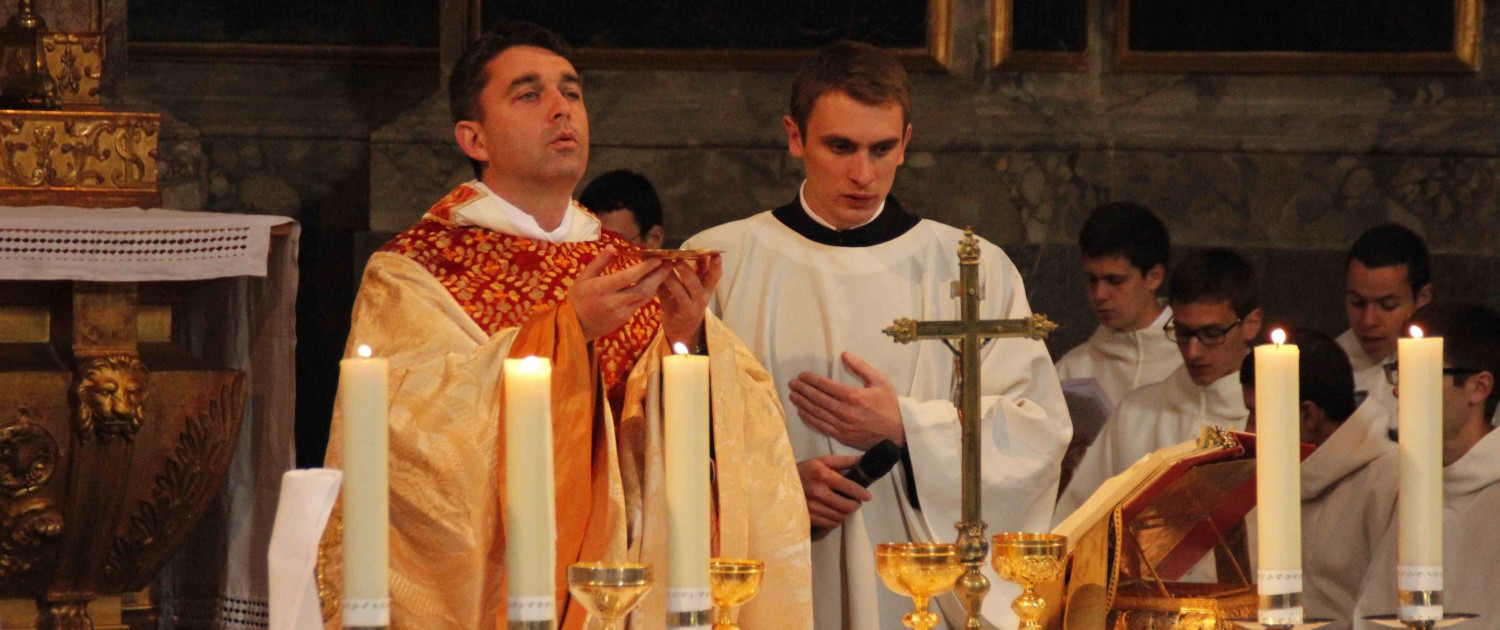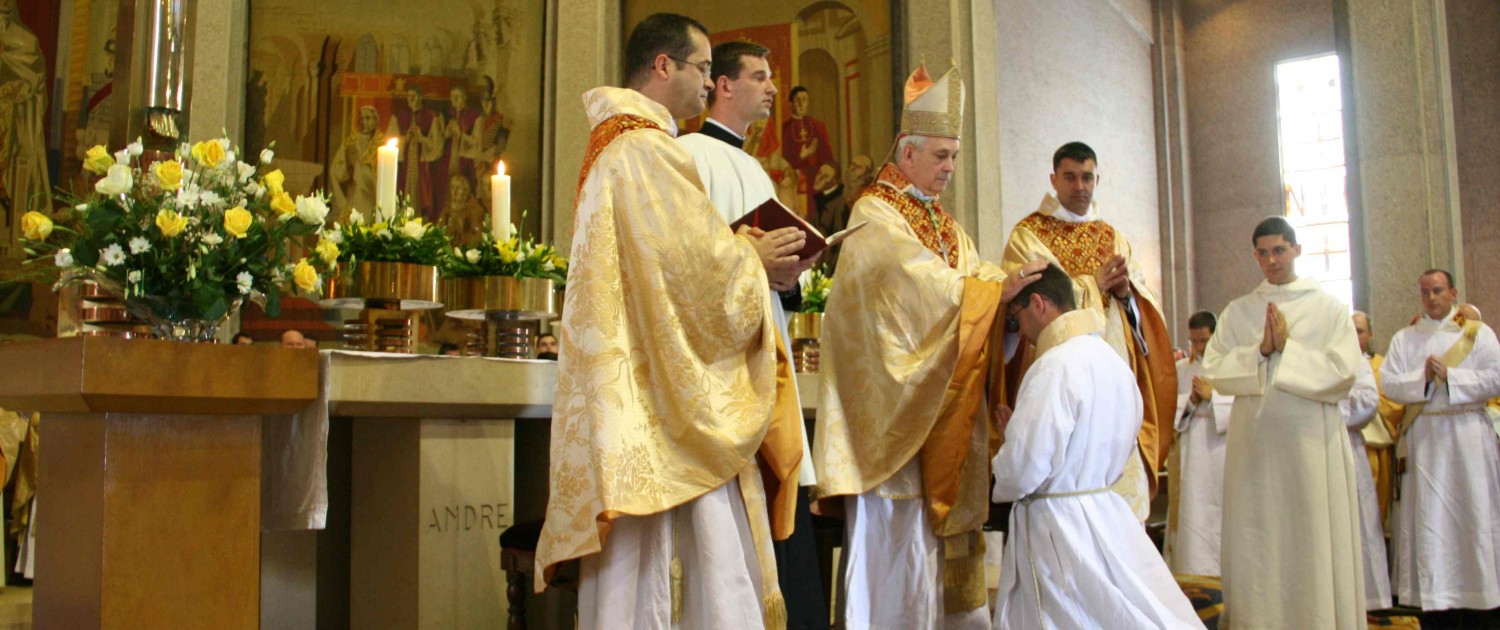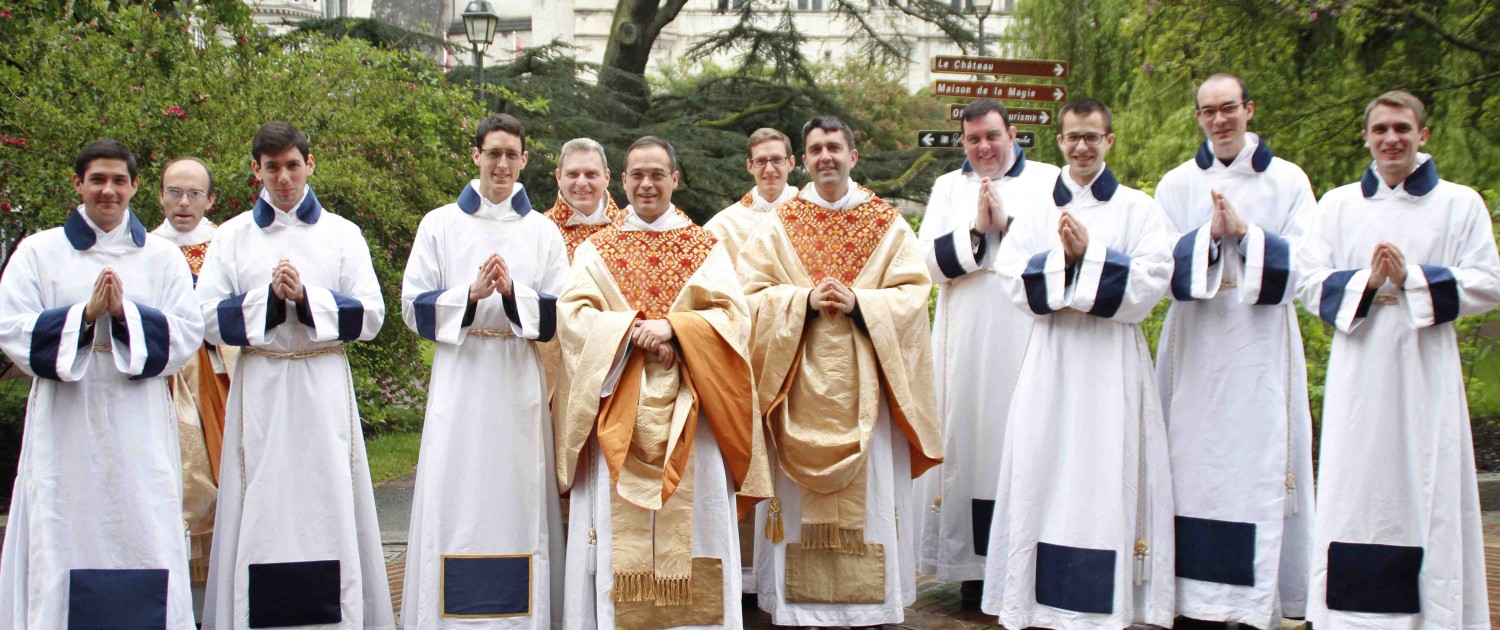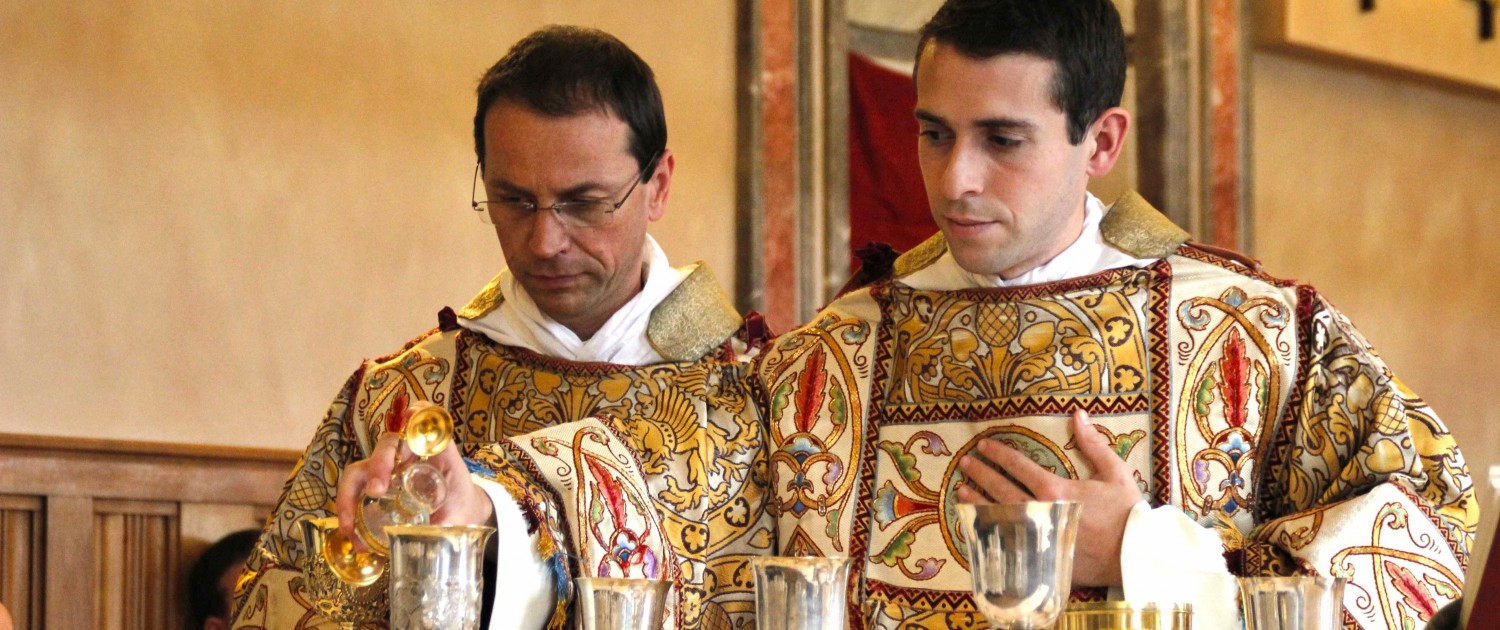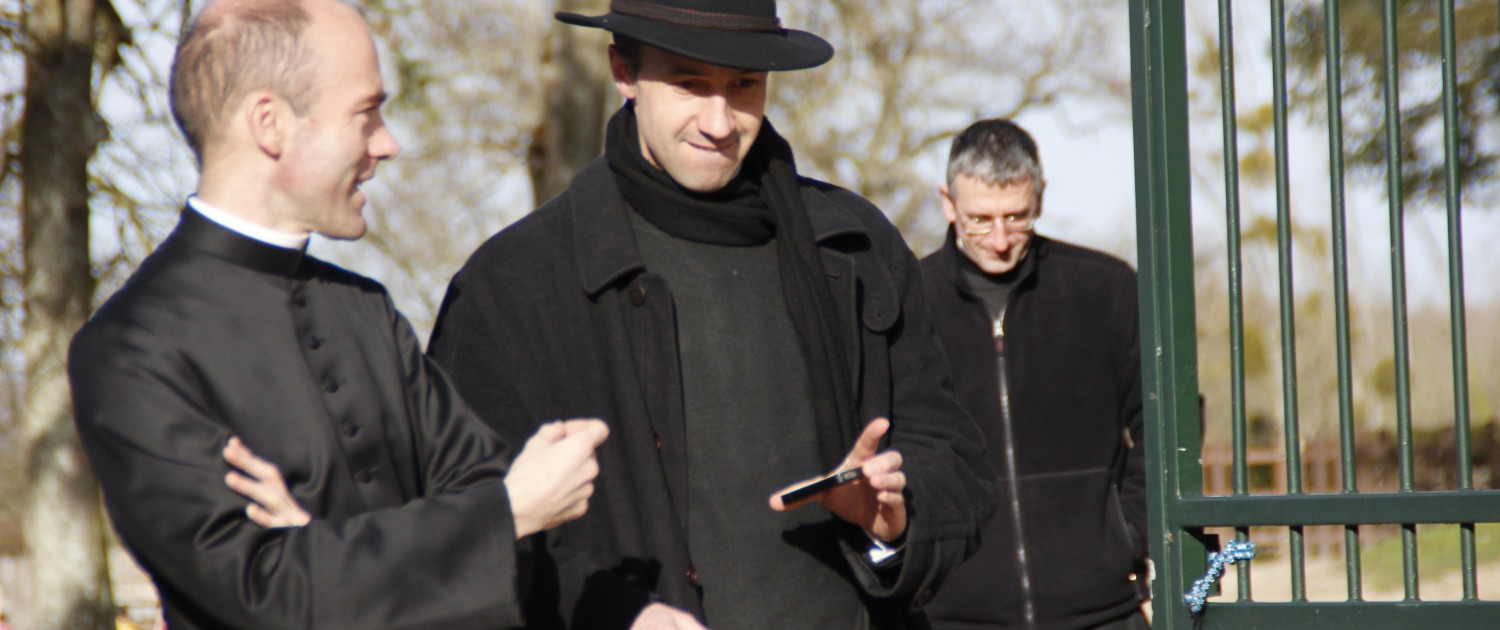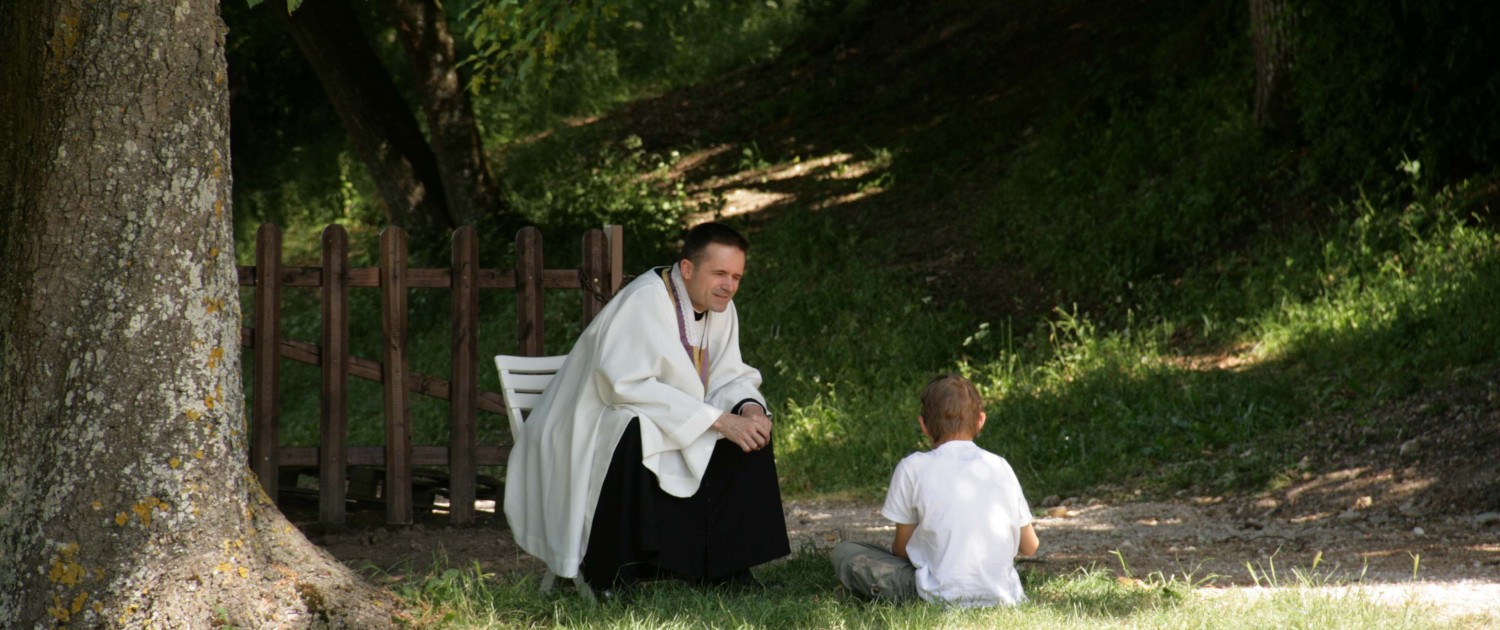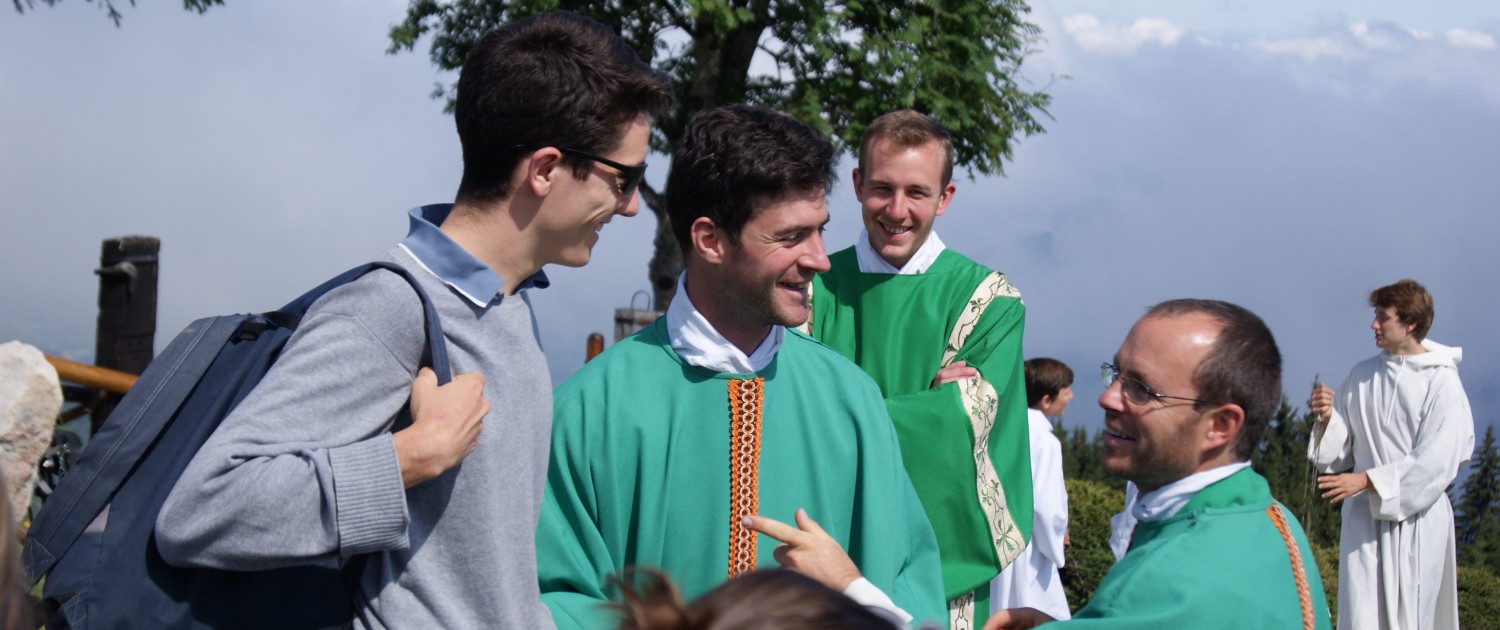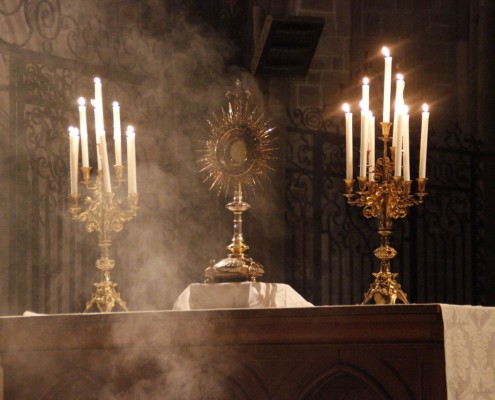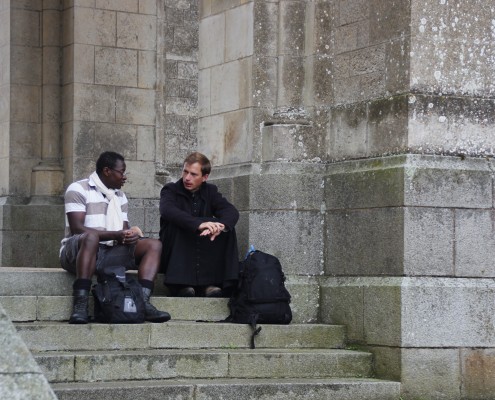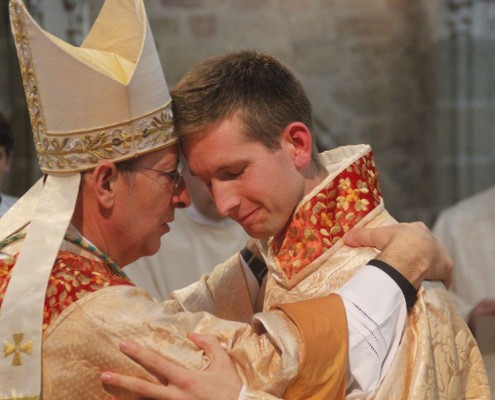1. God calls
The priestly vocation is brought to light first by a loving call of the Lord, but it is sown by God who puts in certain hearts the desire to be consecrated all to Him in order to announce the mystery of salvation to all Men. Concretely, this call is often manifested in discrete ways, which must be recognized. It goes through three particular elements: desire, experience, and aptitudes. A profound desire to be united to Christ, to evangelize, and to serve God wholeheartedly; the experience of a great joy in a time consecrated to God such as during an act of charity or prayer; and the personal aptitudes. Through these, the call’s existence may be discerned. ; being a priest is in fact both the acceptance of an invitation from God and the response to the most profound desires of the heart.
We must specify: God calls freely whoever He wants, without any consideration for the merits. The Apostle is not chosen because he might be better than others – as we may observe in the numerous faults of St. Peter, head of the Apostolic College. God does not choose the bests, He chooses « those He wants » (Mark 3.13).
His call can only be heard in the silence of heart. Meanwhile, this call is eminently personal, it meets with what is most profound in our soul, and reveals the best part of our self.

